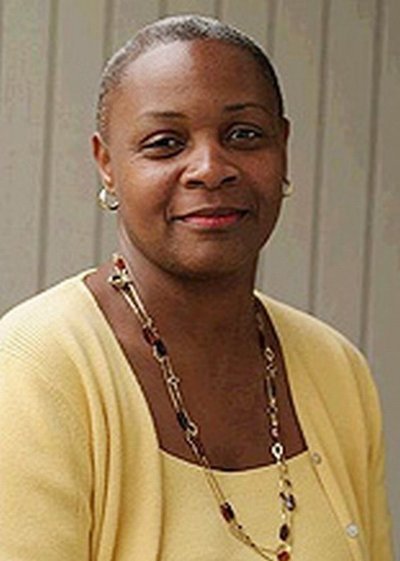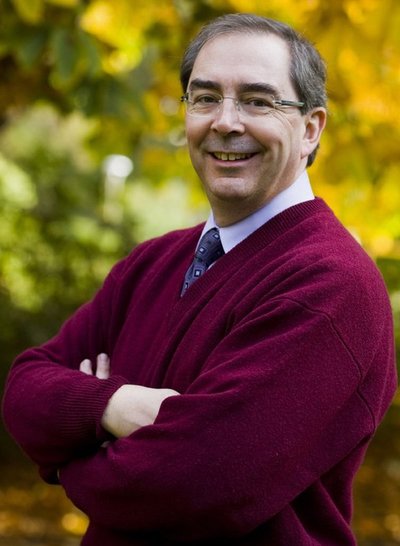May 7, 2009
Advisers from around the state meet for 21st annual conference
From impacts of budget cuts to best practices in reaching students through social media, academic advisers, student services staff and faculty from colleges and universities around the state will have a lot to discuss at the 21st annual Community College & University of Washington Advising Conference on May 8 in the HUB.
Under the theme “Facing New Challenges… Together,” the conference gives advisers the opportunity to learn about community college and UW programs and policies, discuss issues confronting transfer students and meet with colleagues to share innovative ideas that help serve students.
“In a time of decreased funding and increased demand for access to higher education, there’s an increased need for us at the two-year and four-year schools to work together to find efficiencies,” said Megan McConnell, an academic counselor at the Undergraduate Gateway Center and a member of the conference planning committee. “The challenge is making sure that students efficiently get the advice they need to transfer effectively to the University of Washington.”
A pre-recorded greeting by UW President Mark Emmert will welcome advisors in the HUB auditorium, followed by a keynote address by Sheila Edwards-Lange, vice president for minority affairs and vice provost for diversity, and an update on enrollment and admissions matters by Philip Ballinger, director of admissions for UW.
Ballinger will address the budget cuts’ impact on enrollment in general terms, he said, because full details are not available yet.
As of now, UW Seattle plans to cut its autumn freshman class by about 300 students (from last year’s enrollment of about 5,500). Ballinger emphasized that the UW remains committed in its openness to transfer students from Washington community colleges, saying that any cuts in enrollment for transfers will be proportional to overall cuts.
Ballinger said he will also discuss the need for advisers to focus on helping prospective transfer students be ready to enter a major at the UW. This topic is one of many that will be covered in two, hour-long sessions of concurrent workshops. The morning session of workshops, which will take place from 11:15 a.m-12:15 p.m., include:
- AA, AAS, AS, DTA, MRP! What? Another CC Degree? with Tina Christian, Green River Community College; Roy Fentress, Everett Community College; and Janice Grayson and Celinda Smith, Bellevue College.
- Smooth Transitions: Ensuring Continued Financial Aid, with Kay Lewis, UW, and Suzanne Scheldt, North Seattle Community College.
- Preparing Students to be Strong UW Students, with a panel of successful community college transfer students.
- Transfer Admission 101, for new counselors and advisers, with UW’s Carlos Williams.
Participants will break for lunch, which for the first time will include the opportunity to gather at tables with UW advisers from various departments. Advisers will provide information about their programs and get to know the community college advisers better. Complimentary beverages and cookies will be provided for all.
The afternoon session of workshops, from 1:30-2:30 p.m., include:
- Laying Out the Welcome Mat, with Cynthia Masterson and Namura Nkeze, UW.
- From Undecided to Unstoppable: Advising the Equivocal Student, with Noelle Bernard, UWT; Lynnea Erickson, Matthew Erickson and Leah Panganiban, UW; and Sandy Walkenhorst, Bellevue College.
- English Proficiency and English Language Programs, with Priscilla Allen and Lynne Walker, UW, and Rebecca Boon, Seattle Central Community College.
- Transfer Admission 201, for seasoned counselors and advisors, with UW’s Susan Inman.
The conference will conclude with a convocational panel on Using New Technologies to Communicate with the Millennial Student, a topic in which McConnell said advisers have expressed the most interest.
“There’s a generational difference between a lot of the advisers and students and how they are getting their information these days,” said McConnell. “We’re looking at how to reach students through new media because I think e-mail, for a lot of students, isn’t cutting it. They get too many e-mails and they’re not paying attention to them.”
Panelists from both the UW and the community colleges will share their challenges and successes with new technologies, such as Facebook, blogging and online chats, and offer advice on how to best reach students using social media.
The conference is free and open to advisers, student services staff and faculty. Visit the official Web site to register and view a complete schedule.




